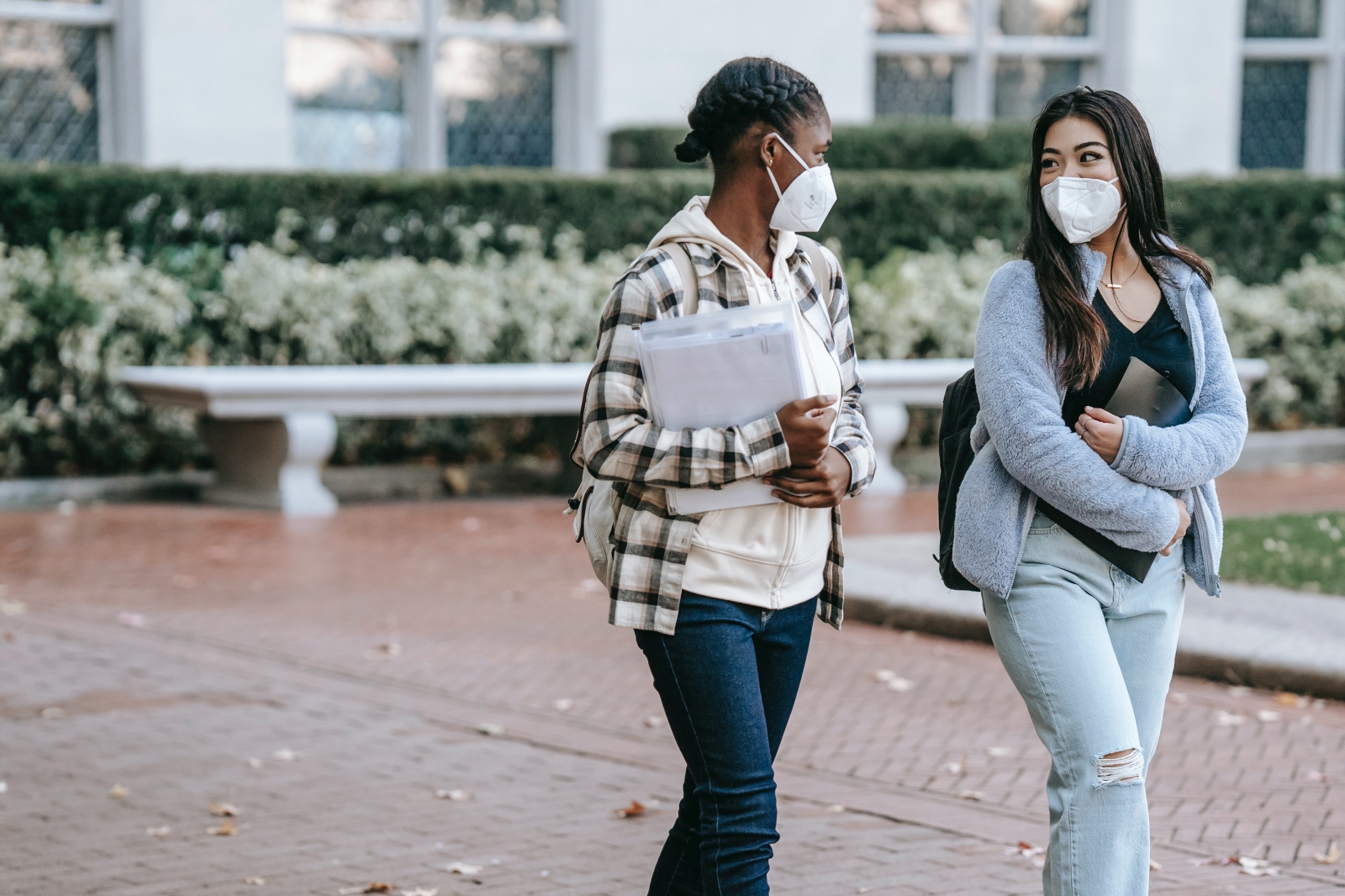Whether you are in your Freshers year, a returning student or coming back to university for postgraduate study, it is likely that you have been at the forefront of adapting to the ‘new normal’. The COVID-19 pandemic has swept a wave of changes across every area of our lives and no more so than university life. On the flip side from the more frightening and isolating effects of the virus, these strange times have also brought out the best of our communities. From this summer’s rainbows that lit up the country’s windows and the Thursday evening tumult of applause for our NHS to the increase in student-led help groups popping up this term, we have shown that now more than ever, we have and can support each other. As we head into the second half of the Autumn term, we have brought together some useful student tips to help you look out for yourself and others.
Checking In
The first and foremost thing that we can all do is check in with our friends, family and housemates. Whether it be mental health needs or supporting those who are physically vulnerable, people may not share how they feel or what they need until we ask. For instance, if you notice that your housemate is sealing themselves away or is more subdued than usual, then simply asking how somebody is doing can make a big difference.
Routine
As universities increasingly push their teaching content online to avoid the risks of lecture halls, it can be easy for all students to put off learning for the day, for bedtimes and alarm clocks to get later and for students to ultimately lose their daily routine. This may not seem significant, but routine can bring a sense of familiarity to daily life and be important for mental wellbeing. Try to still get up at the same time each day and study when you normally would. Perhaps encourage your flatmates or household to have a structured point of the week or the day where you are all together- this could just be 7 pm mealtimes, structured study mornings or meeting for that nightly TV show. If you would typically call your family or listen to a podcast on your way to lectures, then continue to do this at the same time of day from home.
Group Activities
Coming together as a group to have fun and a bit of normality can be a great way to support those we live with. Identify some self-care activities that your whole household can get engaged with, for example, you are probably no stranger to the online pub quizzes that have come to life in 2020. Activities such as this can be really important for social wellbeing, engaging with aspects of student life while staying safe and keeping us connected to the outside world. Other ideas include online baking events and virtual home fashion shows.
It may seem cliché, but exercise can be really beneficial for both the mind and body. Aside from the physical health benefits, it can improve mental wellbeing, sleep and give us a sense of achievement. As such, exercise could make up a big part of your self-care routine and a strategy to support others. Online group exercise sessions are just one avenue and, if you feel comfortable doing so, consider a running group within your household.
Signposting
As the saying goes – It is ok not to be ok. As important as it is to check in with others and support them with the pandemic’s challenges, it is equally important to recognise and respond when external services are needed. All universities have a mental health team that are here for you and your fellow students and your GP and support helplines are also great starting points for mental health needs. Likewise, when it comes to challenging physical barriers resulting from COVID-19, particularly for anyone you know who is self-isolating, the NHS responder service is still in full swing, offering food, transport and prescription services.
Volunteer Groups
Volunteering is perhaps the most direct way to support those outside of our household during the pandemic. This may not be possible within your circumstances or area given COVID-19 restrictions and is not recommended for certain at-risk groups, so it is important to always follow national and local guidance before signing up. But, with the increased need for food banks and social telephone support for elderly and isolated communities at the moment, this is definitely a rewarding and fun avenue worth exploring.




